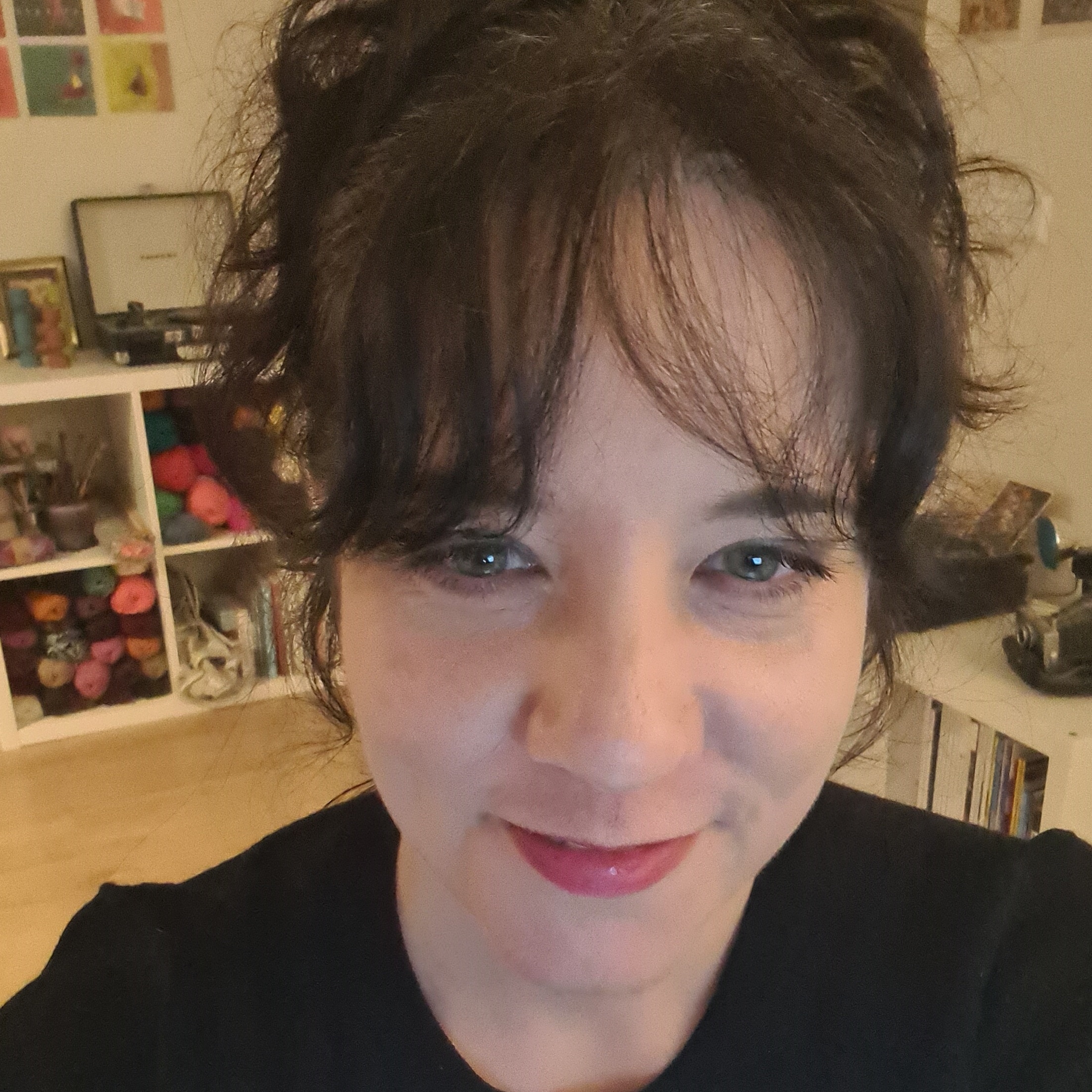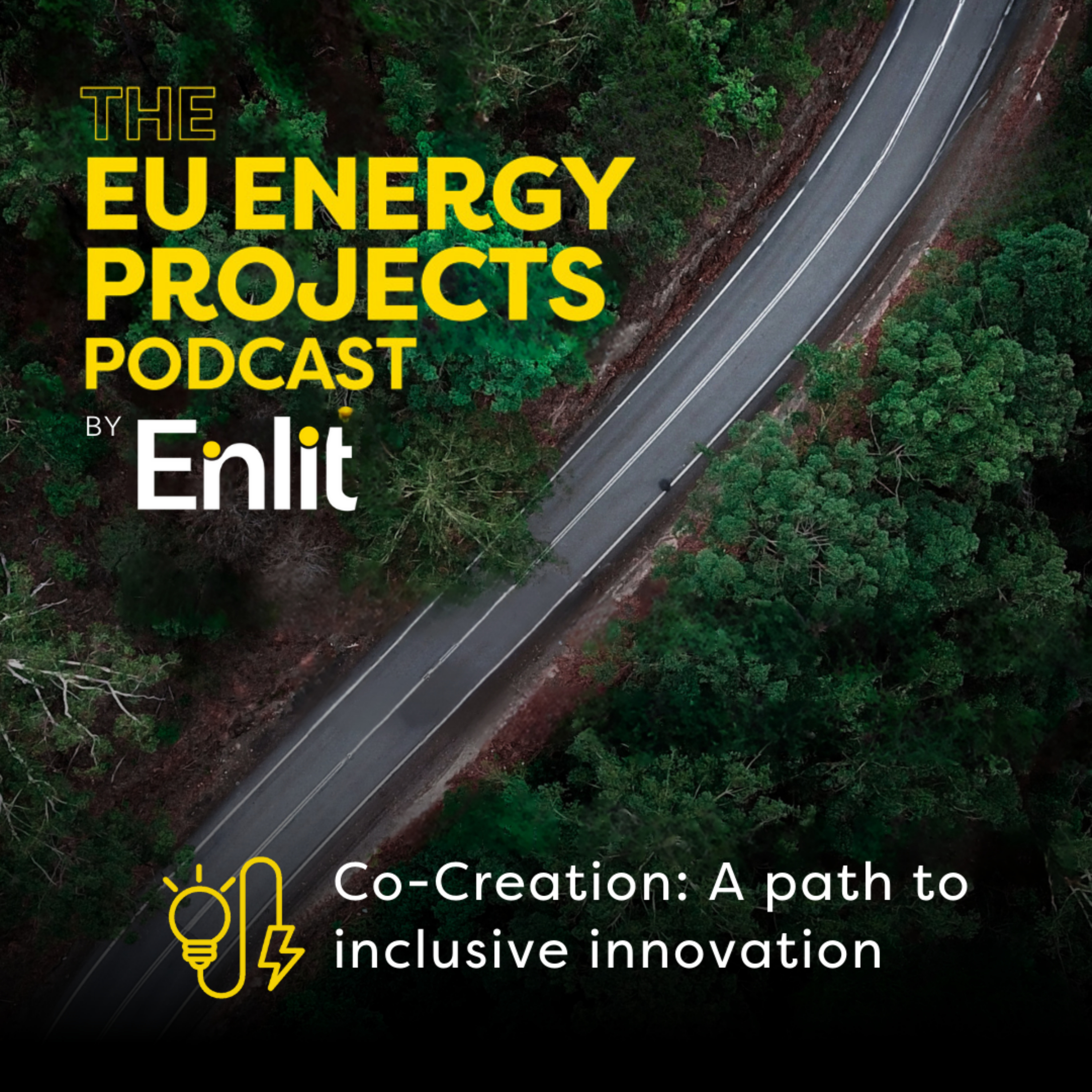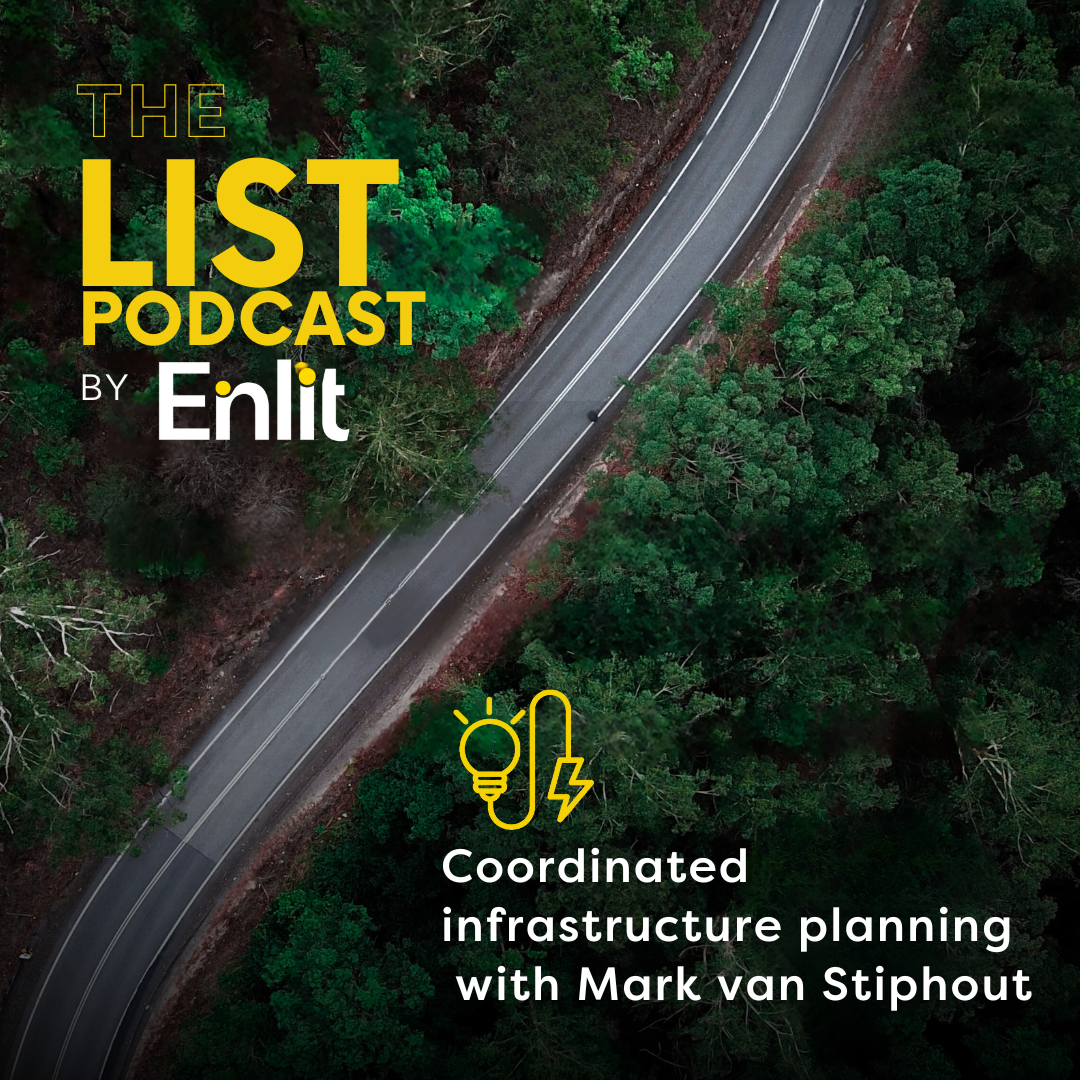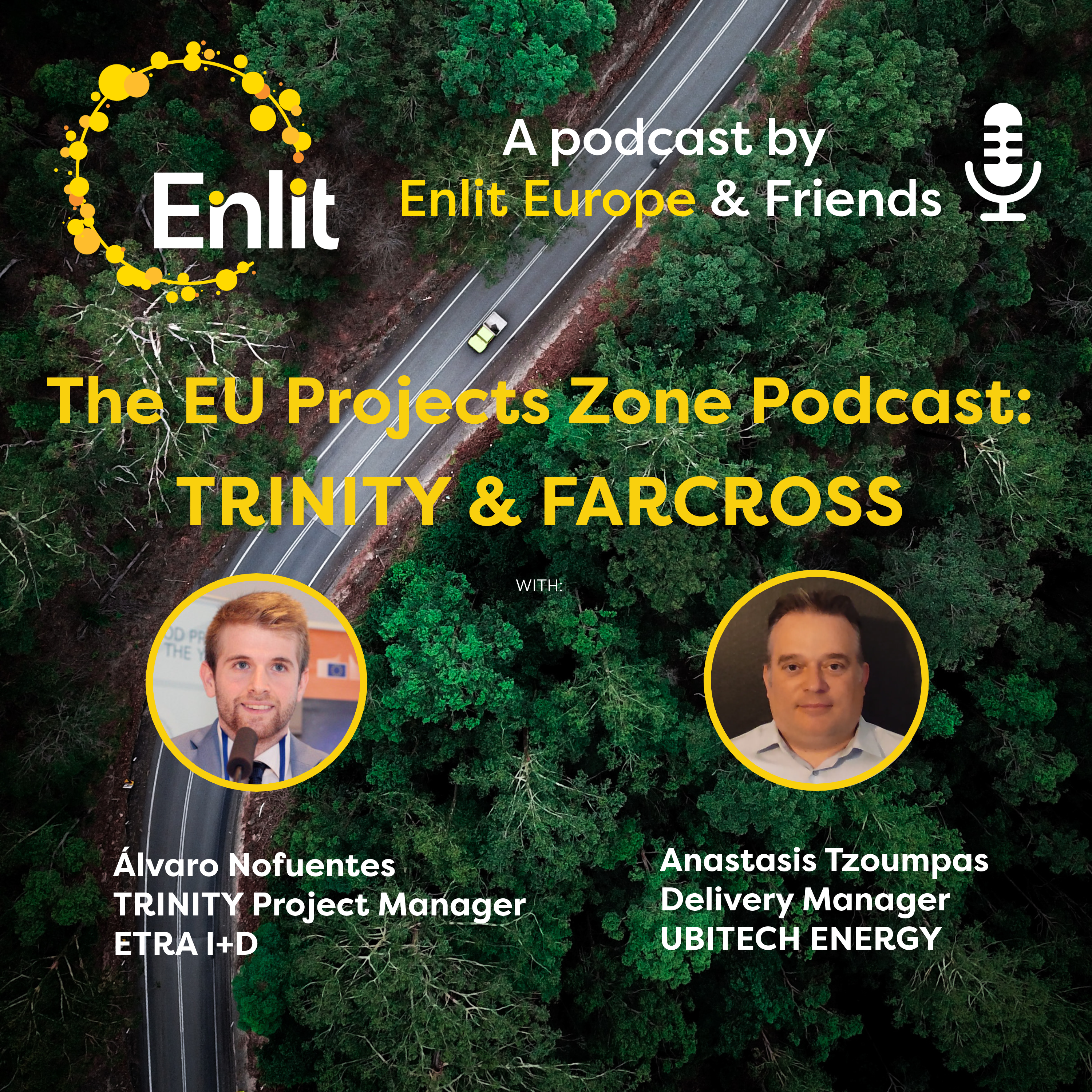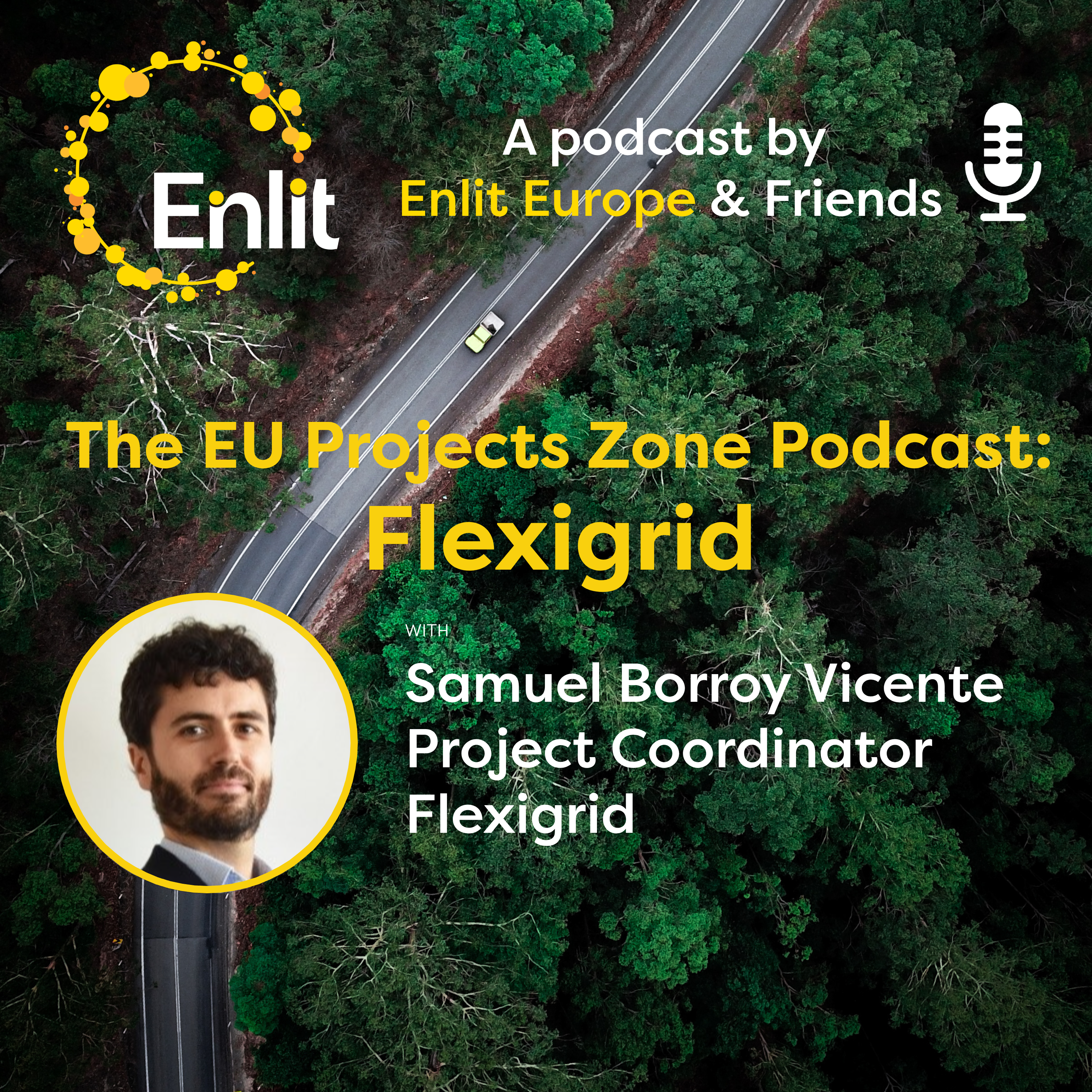Episode Transcript
[00:00:10] Speaker A: Welcome to the EU Energy Projects Podcast, a podcast series from Enlida and France focusing on the clean energy transition for the European Union and the EU Commission funded energy projects that will help us achieve it. My name is Aretid Daradimu. I. I am the editor of the EU Energy Projects podcast and your host.
In this episode we dive into co creation in EU funded projects like Decoded and the Power of Energy Communities. Together with Agiliki Ageli, researcher at BUILD and member of the Decoded consortium. And in honor of International Women's Day, we'll also discuss the crucial role of women in shaping a fairer energy transition.
Hi Ageliki and thank you very much for being here with me in this episode. I would like to ask you what co creation means in the context of an EU funded project.
[00:01:11] Speaker B: Thank you Aretif. Thank you for having me. So co creation refers to any kind of collective activity that creates and generates collective value, let's say so. So co creation is a process of bringing people together, for example through a workshop or a participatory methodology. Something that allows them to share their experiences, their knowledge. And that knowledge could be both, you know, something that they know explicitly, like technical knowledge. Or it could also be experiential. How do we understand the world? How do we live our everyday life? Co creation is important because it allows that meeting of different perspectives and opinions in the same space that in some cases wouldn't otherwise meet.
And also it is a way to, let's say, democratize innovation by allowing people to access and contribute to services or processes or products.
[00:02:04] Speaker A: How do you ensure meaningful engagement with communities? And what are some of the biggest challenges in implementing pilot activities?
[00:02:12] Speaker B: It's important to happen, it's really beautiful to happen, but at the same time there are a lot of challenges. So for me one of the there are are several ways to see and understand this and people are studying it from the different ways that it can be designed and applied. But for me, one of the biggest challenge relates to the issue of the expectations for co creation in the beginning. So for example, from the organizers of these co creation sessions, in our case, for example, we're working on an EU Horizon project. We, we are the ones designing the kind of interactions and activities. So we need to set some expectations. For example, to what extent can we design that co creation? And what I mean is that in a lot of projects, especially new projects, a lot of the solutions, which might be technical solutions, for example like digital tools, have already been somehow pre made or pre developed up to an extent and so we need to decide to, to what extent people can become co creators, how do we open that up to a community and what are we going to, how are we going to stage it and therefore how we're going to evaluate their input. So this is actually quite an important thing to decide in the beginning or to estimate at least in the beginning. And that's why we're trying to do with decoded at this point as well.
And so, you know, then we can decide and look at matters of, you know, representation, for example, and dynamics during co creation. But it's also important to see how we're going to use the learnings from that and to what extent we will allow them to affect the design of these tools.
[00:03:51] Speaker A: I want to circle back to digital tools that you mentioned. What role do they play and data also in co creating sustainable energy solutions and how can they improve citizen participation in decision making?
[00:04:06] Speaker B: Yes. So digital tools or other technologies, let's say, can be understood as kind of materials used in the performance of different energy related practices. So for example, applications that we use in our everyday life to assist us in visualizing or managing our energy consumption. So these are the kind of tools we're talking, but in order for these tools to be meaningful and to contribute to change, or maybe sustainable change, is that they need to be supported by other things like for example, relevant understandings, which is what it means. Why do we do that? Why do we need these tools? And how can we also have the appropriate skills or competencies to work these? And how do we actually combine this? So in their own, without the other two elements, without these skills to use them, and without the understandings of what it's for, it's much harder for us to expect that they will actually make a change into people's lives.
[00:05:03] Speaker A: Could you share a success story from a new funded project where co creation led to innovative and effective energy solutions?
[00:05:11] Speaker B: Yeah, I mean, yeah, there's different aspects, but co creation is quite good at revealing different layers of community or for a group under investigation. Yeah. So a good example, a recent example is that one of the co creation kind of processes allowed us to visualize and deal with issues of gender, for example, or gender and energy technologies specifically in different communities in Europe. So by bringing together the people and listening to their stories and we understood how there is a disproportionate load in the everyday. You know, housekeeping and energy housekeeping, which is how we deal and manage our energy. And co creation helped us kind of first of all understand and visualize that issue. Otherwise it would have been harder to do it individually with people just on interviews. And at the same time helped us widen this participation to groups that we needed. We had more women, we had women focus groups specifically to unpack the issue and to visualize not only the problem and define it with co creation, but at the same time visualize, visualize and make some common kind of visions about pathways for resolving it. So to resolve that misalignment, for example.
[00:06:25] Speaker A: So we mentioned already more than once energy communities and it is true that they're gaining traction across Europe. What are the main benefits of local energy ownership? And how can policies better support their growth?
[00:06:39] Speaker B: Yeah, so I guess energy communities are really important because they are the units that are helping people become getting a more active role the energy market. And they're becoming prosumers. They can produce their own energy and they can also provide more flexibility to systems. So energy communities are really good sites for this energy citizenship to develop and at the same time for the wider energy democracy to kind of start developing in the energy system. But also it's important to understand how this governance of citizens works.
So we can understand energy communities as not just as a technical kind of term, but as something that is a socio technical unit that involves people, technologies and involves infrastructure and governance. So it's a more complex kind of organism if you like. So so far there's a lot of research into these kind of business models that can support energy communities or technical or even legislative perspectives. But I think we also have an important role. Energy communities have an important role in the, not just in the supply and making of energy, but actually on the demand. So a lot of things are happening bottom up from people. But now we need to navigate this complexity and understand how this demand that is generated by people through, you know, their everyday life can be translated with practices. And I think energy communities kind of need to become more able by they need help to navigate that complexity. Not just the technical complexity, but how they coordinate their everyday life with everything that's available to them.
[00:08:18] Speaker A: Did you know that Enlit has another podcast? The Energy Transitions Podcast is a broad ranging bi weekly podcast about the people accelerating the energy transition in Europe and beyond. You can find it on Spotify, Apple or wherever you enjoy your podcasts.
How then do we scale up energy communities while ensuring inclusivity, particularly for marginalized groups who might struggle to participate? I mean, we recently found out that there are more than 40 million Europeans that are having troubles keeping the lights on.
[00:09:00] Speaker B: Yeah, I think this is quite a complex.
I don't know if I have an answer to this directly. I think that this transition, in order to happen, it needs to consider all of those issues. We need a just and fair transition. However, it's not always possible and we need to coordinate a lot of different elements. However, I think what we need to understand is how we can unpack existing inequalities. First of all to understand what's going on and at the same time to create through energy communities. We could create alternative cultures or alternative ways and practices that can be then scaled up. So developing visions and at the same time holding this idea of social justice and climate justice alongside with community development. So it is not something that can happen immediately. I think it's a step by step and it will include one thing, one element affecting the other in order to scale up.
[00:09:58] Speaker A: And it is good to know that the European Commission, as they said in their affordability plan, are spot on looking to solve this issue. One of the marginalized, or maybe not as marginalized groups is women. Women in the energy transition and their role. So I think you will agree with me. If you don't, please feel free to let me know and say why the energy sector is still male dominated. It. What barriers do women face, in your opinion, in leadership and technical roles? And how can we break this down?
[00:10:34] Speaker B: Yeah, well, it is, I think, I agree it's still. Energy is still very heavily male dominated.
So I don't know, I think there are different layers and different aspect, different roles within this energy sector. It could be the technical sector, it could be a lot of things that support that. So I think some of the challenges, I guess, is the idea that there's not enough visual kind of role models, for example, for women. There need to be more mentorship programs, more ways for women to see the success stories of others and to also network more. It's not one way to see it. I think one way to understand it is that it's first of all cultivating interest in science and technology in getting more women into the subjects. And then of course, course leadership and later roles will also come. So I think it's all interconnected and it's kind of important to see how we can not just create role models, but actually encourage more women to get into different positions and be able to develop from there.
[00:11:38] Speaker A: So it starts, let's say, in the family, at school, and it evolves as it goes. It's not just a thing in society. Universities. I couldn't agree more. What impact does greater gender diversity have on innovation and decision making in the Energy sector or should have, let's say.
[00:11:56] Speaker B: Yeah, I think by increasing diversity we can also think of it as a way to develop a more just or a more fair process of representation.
So for example, diverse like engage or put more diverse experiences in the process and that enriches both our understandings of why things happen or why things should happen in specific context. So for example, one of these is to develop, to think about in what way we can use a gender lens to develop strategies, but not only use a gender just, but also a gender transformative lens. So start in the beginning by kind of specifically targeting and understanding how we can involve more women. What are these other issues that affect gender and how, for example, technologies are gendered in their design and how we can actually provide a better, like I said, role modeling. How can we, you know, promote these things from the beginning from a kind of strategy? So increasing diversity and inclusivity is one of the most important things I think in this transition. It is one of the hardest things also to do because it contains not just one sided version, but this, this effort needs to be actually translated and incorporated into a lot of things like the design of technologies, the way things are disseminated and communicated, a change of language, a way how we address things in communities and how we. So it is in all different sectors and it has to be included from the beginning of, let's say, a process.
[00:13:38] Speaker A: Speaking of mentorship that you mentioned earlier and as we celebrate International Women's Day, it's going to be a couple of of this after this episode goes live. What message would you like to share with women working in or aspiring to join the energy transition movement?
[00:13:57] Speaker B: I guess we all need to act as agents of change in lots of different scales and ways. I guess we need to all help or more women need to help visualize the different stories, stories of success, but also stories of failure in the process of transition.
We also need. An important thing for me is to value and promote different kinds of knowledge. Not just technical expertise, but also lived and tacit experiences, ways of doing things and which there isn't one correct way of doing things. And that is not so it's not just taking, you know, the scientific or the technical perspective, but intersecting with everything else that happens and how people, you know, we live with energy. Energy is there to support our everyday life and what we do. So we all have a say in it. And at the same time, ye women need to share and get involved in whatever way is possible, whether it is in the community or in their, you know, field. Of work if they are in the energy sector or, for example, in research. But for me, it's more about visualizing and kind of, you know, supporting each other and getting out a lot more role models for women to then, you know, be able to continue and feel empowered in this process.
[00:15:13] Speaker A: I couldn't agree more. And on this note, I would like to thank you, Ageliki, very much for this interesting conversation.
[00:15:20] Speaker B: Thank you very much. Aradi, it was great to talk to you.
[00:15:24] Speaker A: You've been listening to the EU Energy Projects Podcast, a podcast brought to you by Enlit and Friends. You can find us on Spotify, Apple and the Enlit World website. Just hit subscribe and you can access our other episodes, too. I'm Aletti Daradimo. Thank you for joining us.
